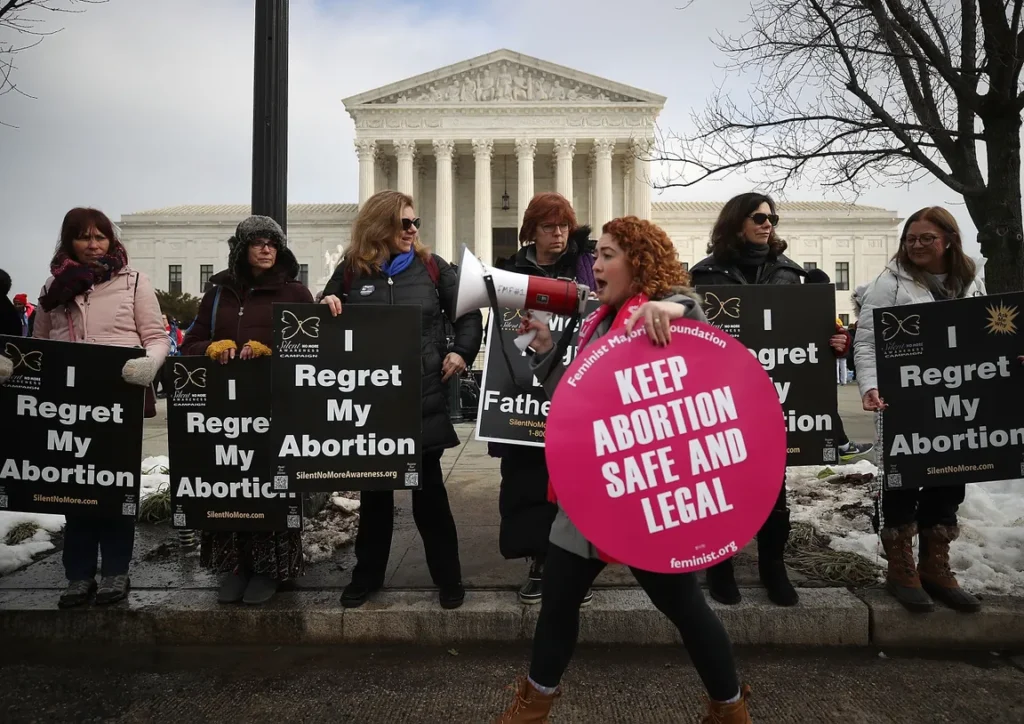Louisiana’s unprecedented law categorizing the abortion medications mifepristone and misoprostol as “controlled dangerous substances” has come into effect, sparking widespread alarm among healthcare providers and pharmacists regarding its potential impact on women’s health care in the state. This legislation, which mirrors strict regulations typically applied to highly addictive substances, raises fears that essential treatments for conditions like miscarriage management and postpartum hemorrhage could be delayed due to the requirement that misoprostol be stored in locked cabinets.
Doctors like Dr. Jennifer Avegno, an emergency physician and director of the New Orleans Health Department, are expressing serious concerns about the implications of this law. “You want to be able to have it right there in the moment,” she stated, highlighting that crucial minutes can make a difference in emergency situations. Healthcare providers in Louisiana have already begun conducting drills to assess how long it will take to retrieve misoprostol from locked storage during childbirth emergencies, revealing that the new restrictions could significantly hinder timely medical interventions.
Although abortion was already illegal in Louisiana except in limited circumstances, the law imposes severe penalties on those caught possessing these medications without a valid prescription, with potential prison sentences of up to five years and fines reaching $5,000. However, the law does exempt pregnant women from penalties if they possess the drugs “for her own consumption.” The law was championed by Republican state Senator Thomas Pressly, who cited a personal experience of coercion regarding misoprostol as a motivation for the legislation.
Healthcare experts warn that the law could result in unnecessary delays in treatment, particularly for women experiencing miscarriages. Dr. Honor MacNaughton, a family physician specializing in reproductive health, emphasized that many women seek medical management of miscarriages for prompt relief and to avoid the emotional strain of waiting. “Being told you can’t access timely care can cause unimaginable heartache,” she said.
Supporters of the law argue that it does not impede legal prescriptions of mifepristone and misoprostol. The Louisiana Department of Health issued guidance indicating that these medications can still be utilized in hospitals for treating postpartum hemorrhage and incomplete miscarriages, although they must be stored securely. Major health systems and pharmacy organizations in the state have begun preparing for the law’s implementation, issuing FAQs for staff and outlining necessary steps to access the medications from locked storage.
However, medical professionals, including addiction specialists, have criticized the categorization of these medications as controlled substances, labeling it an overreach. Dr. Lucille Howard, an ob/gyn at Tulane University, remarked, “Frankly, it is absurd,” stating that these medications do not pose the same risks for dependence as benzodiazepines and similar drugs. Concerns are also mounting that tracking prescriptions of these drugs could stigmatize healthcare providers and discourage them from prescribing the medications altogether.
With Louisiana’s maternal mortality rates among the highest in the nation, healthcare advocates worry that this law could reverse hard-earned progress in reducing postpartum hemorrhage-related deaths. Dr. Avegno noted that the law may create new barriers to essential care, calling for ongoing monitoring of its impact on patients and healthcare providers.
The New Orleans City Council has taken action, directing the health department to study the effects of the law and set up a confidential reporting system for individuals to share their experiences. Dr. Avegno emphasized the importance of documenting these impacts to inform decision-makers: “We don’t want anybody to suffer in silence and feel like not being able to access care is something that no one cares about. Because we certainly do.”
As the law begins to take effect, healthcare providers across Louisiana remain on alert, facing the challenge of navigating this controversial legislation while striving to provide essential care to women in need.



